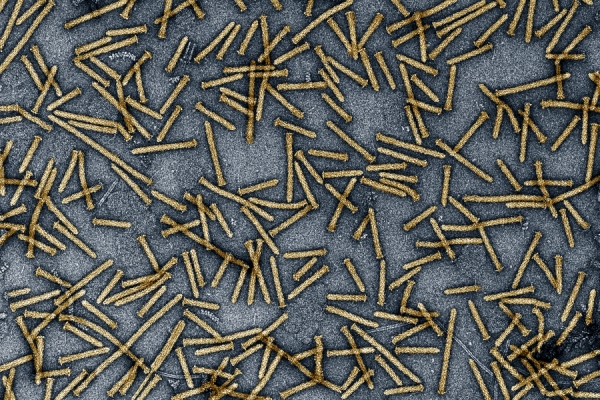Researchers at the McGovern Institute for Brain Research at MIT and the Broad Institute of MIT and Harvard have harnessed a natural bacterial system to develop a new protein delivery approach that works in human cells and animals. The technology, described today in Nature, can be programmed to deliver a variety of proteins, including ones for gene editing, to different cell types. The system could potentially be a safe and efficient way to deliver gene therapies and cancer therapies.
Led by MIT Associate Professor Feng Zhang, who is a McGovern Institute investigator and Broad Institute core member, the team took advantage of a tiny syringe-like injection structure, produced by a bacterium, that naturally binds to insect cells and injects a protein payload into them. The researchers used the artificial intelligence tool AlphaFold to engineer these syringe structures to deliver a range of useful proteins to both human cells and cells in live mice.
“This is a really beautiful example of how protein engineering can alter the biological activity of a natural system,” says Joseph Kreitz, the study’s first author, a graduate student in biological engineering at MIT, and a member of Zhang’s lab. “I think it substantiates protein engineering as a useful tool in bioengineering and the development of new therapeutic systems.”
Read more at Massachusetts Institute of Technology
Image: Purified Photorhabdus virulence cassettes, imaged using transmission electron microscopy. Image Credits: Joseph Kreitz/Broad Institute, McGovern Institute


